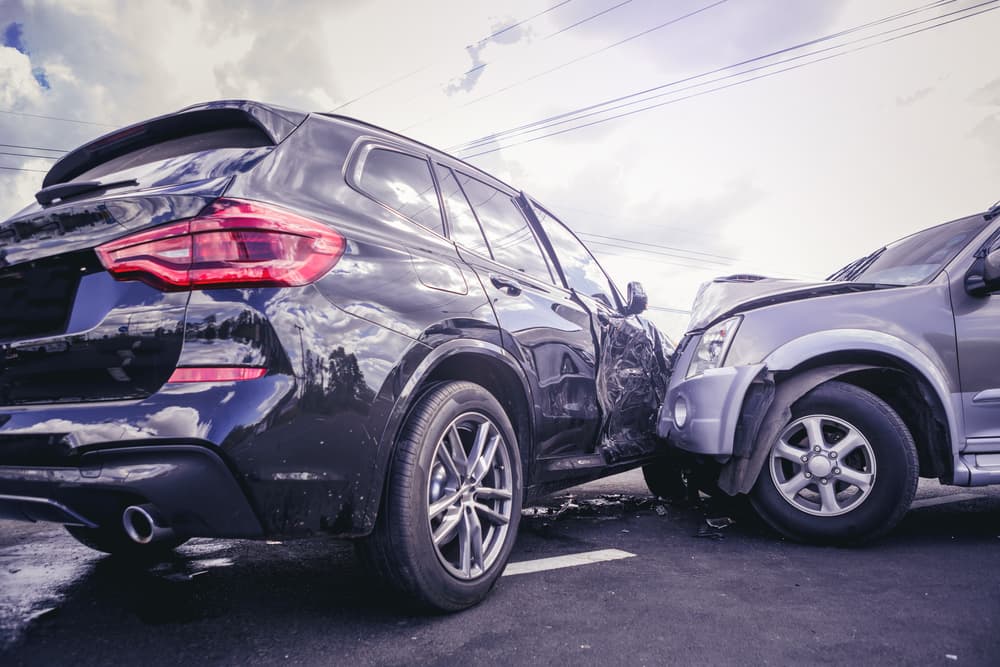Car accidents usually happen when other drivers exhibit road rage, engage in distracted driving, or violate other traffic laws and regulations. In any of these situations, drivers and passengers on the receiving end are prone to suffering debilitating injuries, some of which may be permanent.
When dealing with the insurance company after a car accident, many accident victims find that they are fighting an uphill battle. This is because insurance companies frequently make very low settlement offers – especially at the beginning of a personal injury case. Consequently, you should never accept an insurance company’s first offer.
A car accident attorney in your area can file a timely claim or lawsuit on your behalf, aggressively negotiate with the insurance company, and fight for your legal rights and interests. Moreover, if the insurance company does not make you a fair settlement offer, your lawyer can pursue litigation in the court system on your behalf.
Common Car Accident Types, Causes, and Injuries
Car accidents come in various types, each with its own causes, injuries, and medical treatments. Here are some of the most common types of car accidents:

- Rear-End Collisions – Rear-end collisions occur when the front of one vehicle strikes the back of another vehicle. These accidents often happen due to distracted driving, following too closely (also known as tailgating), or sudden stops. Injuries from rear-end collisions may include whiplash, back injuries, and head trauma. Treatment typically involves rest, physical therapy, and pain management techniques.
- T-Bone Collisions – T-bone collisions, also known as side-impact or broadside collisions, typically occur when the front of one vehicle strikes the side of another vehicle. These accidents frequently happen at traffic intersections or when one driver fails to yield the right-of-way. Injuries from T-bone collisions can range from minor bruises to severe internal injuries and fractures. Medical treatment may include surgery, rehabilitation, and long-term care.
- Head-On Collisions – Head-on collisions occur when the front ends of two vehicles collide. These accidents often result from distracted driving, impaired driving, or drifting into oncoming traffic lanes. Injuries from head-on collisions can be catastrophic and may include traumatic brain injuries (TBIs), spinal cord injuries, and multiple fractures. Treatment may involve emergency medical care, surgery, and extensive rehabilitation.
- Sideswipe Collisions – Sideswipe collisions occur when the sides of two vehicles make contact while traveling in the same direction. These accidents can happen when a driver fails to check blind spots or merges into another travel lane without signaling. Injuries from sideswipe collisions may include soft tissue injuries, whiplash, and minor fractures. Treatment typically involves rest, pain management, and physical therapy.
Regardless of the type of car accident, seeking prompt medical attention is crucial for assessing and treating injuries. Common medical treatments for car accident injuries may include:
- Diagnostic Tests – Medical professionals may order diagnostic tests, such as X-rays, CT scans, or MRIs, to assess the extent of injuries and identify any underlying conditions.
- Emergency Medical Care – In cases of severe injuries, accident victims may require immediate medical attention, including emergency surgery, to stabilize their condition and prevent further harm.
- Medication – Pain medication, anti-inflammatories, and muscle relaxants may be prescribed to manage pain and discomfort resulting from car accident injuries.
- Physical Therapy – Physical therapy helps accident victims regain strength, flexibility, and range of motion after sustaining injuries. It may include exercises, stretches, and manual therapy techniques.
- Surgery – In cases of serious injuries, such as fractures or internal organ damage, surgery may be necessary to repair the damage and restore functionality.
Why are Initial Car Accident Settlement Offers so Low?
Car accident settlement offers are often low for several reasons, primarily because insurance companies aim to minimize their financial liability and maximize their profits. Here’s why settlement offers tend to be low and how an experienced car accident attorney can negotiate with the insurance company on your behalf to secure fair compensation:
- Minimizing Costs – Insurance companies are businesses that prioritize their bottom line. They seek to minimize costs by offering low settlement amounts to accident victims, hoping they will accept less than they deserve rather than pursuing further legal action.
- Disputing Liability – Insurance companies may dispute liability for the accident, claiming that their policyholder was not at fault or that the victim contributed to the accident in some way. This tactic allows them to justify offering lower settlement amounts or deny the claim altogether.
- Undervaluing Damages – Insurance adjusters often undervalue the damages that accident victims suffer, including medical expenses, lost income, pain and suffering, and other losses. They may use algorithms or predetermined formulas to calculate settlement offers rather than considering the unique circumstances of each case.
- Pressuring Victims to Settle Quickly – Insurance companies may pressure accident victims to settle quickly before they have had a chance to fully understand the extent of their injuries or consult an attorney. This tactic is designed to take advantage of victims’ vulnerability and persuade them to accept inadequate settlement offers.
- Lack of Legal Representation – Without legal representation, accident victims are at a significant disadvantage when negotiating with insurance companies. Insurance adjusters are skilled negotiators trained to protect the interests of the insurance company – often at the expense of the victim’s rights.
An experienced car accident attorney can level the playing field by advocating for your rights and interests throughout the negotiation process. Here’s how an experienced attorney can help:
- Accurately assessing the Value of Your Claim – A car accident attorney can accurately assess the value of your claim by considering all relevant factors, including the severity of your injuries, the extent of your damages, and the long-term effects on your life.
- Gathering Evidence – An experienced attorney will also gather evidence to support your claim, including medical records, accident reports, witness statements, and expert opinions. This evidence strengthens your case and increases the likelihood of obtaining a favorable settlement.
- Negotiating with the Insurance Company – Armed with a thorough understanding of your case and the relevant laws, an attorney will negotiate with the insurance company on your behalf to secure a fair settlement. They will use their knowledge of the legal process and their negotiation skills to fight for maximum compensation for your injuries and losses.
- Litigating if Necessary – If the insurance company refuses to offer a fair settlement, an attorney can file a lawsuit and take your case to court. Litigation sends a message to the insurance company that you are serious about pursuing your claim and can lead to a more favorable outcome through trial or settlement negotiations.
Car accident settlement offers are often low due to various factors, but an experienced car accident attorney can negotiate with the insurance company on your behalf to secure fair compensation for your injuries and losses. With legal representation, you can level the playing field and fight for the full and fair compensation you deserve.
Potential Car Accident Litigation Options
In a car accident case, there are several potential litigation options available to accident victims seeking compensation for their injuries and damages. Here are the main options:
- Settling Out of Court – Before pursuing formal litigation, accident victims and the at-fault party’s insurance company may attempt to reach a settlement agreement through ongoing negotiations. Settlements can often be reached through direct discussions between the parties or with the assistance of mediators or arbitrators. If a settlement is reached, the case is resolved without the need for formal litigation.
- Mediation – Mediation is often a voluntary, non-binding process where a neutral third party, known as the mediator, helps facilitate discussions between the parties to reach a mutually acceptable resolution. Mediation sessions are informal and confidential, allowing both sides to openly discuss their positions and explore potential solutions. While the mediator may offer suggestions or recommendations, the final decision to settle rests with the parties involved.
- Arbitration – Arbitration is a more formal process where a neutral third party, known as an arbitrator, hears arguments and evidence from both sides and renders a binding decision to resolve the dispute. Unlike mediation, arbitration results in a final, legally enforceable decision that is typically binding on both parties. Arbitration may be conducted through a private arbitration firm or as part of a contractual agreement between the parties.
- Jury Trial – If a settlement cannot be reached through negotiation, mediation, or arbitration, the case may proceed to trial in the court system. In a jury trial, a panel of impartial jurors hears evidence and arguments presented by both sides and renders a verdict based on the facts of the case and the applicable law. The judge presiding over the trial provides legal guidance and instructions to the jury, but the ultimate decision rests with the jurors.
Each litigation option has its advantages and disadvantages, and the appropriate course of action will depend upon the specific circumstances of the case and the preferences of the involved parties. A skilled car accident attorney can assess the merits of each option, provide guidance on the best approach, and advocate for the rights and interests of the accident victim throughout the litigation process.
Important Car Accident Evidence

In a car accident claim or lawsuit, gathering the right types of evidence is crucial to establishing liability and proving damages. Here are some of the most important types of evidence:
- Accident scene evidence, including photographs or videos of the accident scene, skid marks, road signs, traffic signals, and any other relevant features
- Witness statements from individuals who saw the accident occur
- Police reports which include important information, such as the date, time, and location of the accident, as well as statements from involved parties and witnesses
- Medical records that document the victim’s injuries, treatments received, and prognosis
- Expert opinions, including testimony from accident reconstructionists, medical professionals, or other specialists
- Vehicle damage documentation, including photographs of the vehicles involved in the accident, repair estimates, and vehicle inspection reports
- Cell phone records that can demonstrate whether a driver was using their phone at the time of the accident
- Surveillance footage from nearby businesses or traffic cameras
By collecting and presenting these types of evidence, accident victims can strengthen their cases and increase their chances of obtaining fair compensation for their injuries and damages.
Factors that Affect Damages in a Car Accident Case
In a car accident case, damages awarded to an accident victim depend on several factors. These factors can vary depending on the circumstances of the car accident and the extent of the victim’s injuries. Here are some key factors that affect damages and some typical losses that damages cover:
- Severity of Injuries – The severity of the victim’s injuries is a significant factor in determining the types and amounts of damages awarded. More severe injuries typically result in higher medical expenses, greater pain and suffering, and longer recovery periods, leading to larger compensation awards.
- Medical Expenses – Accident victims can recover compensation for past and future medical costs related to their injuries.
- Lost Income and Earning Capacity – If the accident victim can’t work because of their injuries, they can recover compensation for lost income and, in some cases, for loss of their ability to earn income.
- Pain and Suffering – Accident victims may be awarded compensation for the physical pain and emotional suffering they endured, as well as for loss of life enjoyment, loss of consortium, and loss of the ability to use a body part (such as from a paralysis injury).
- Punitive Damages – In cases involving particularly reckless or egregious conduct, such as intentional driver misconduct or drunk driving, the court may award punitive damages in addition to compensatory damages. Punitive damages punish the at-fault party instead of reimbursing specific losses.
The damages in a car accident case depend upon the specific accident circumstances, the extent of the victim’s injuries, and the legal principles governing the case. By working with an experienced car accident attorney, accident victims can pursue full and fair compensation for their injuries, losses, and damages resulting from the occurrence.
Speak with a Knowledgeable Car Accident Lawyer in Your Area Today

If you recently sustained injuries in a car accident, a personal injury lawyer experienced in auto accident cases can be extremely helpful. Your attorney can aggressively represent you during all settlement negotiations with the insurance company and, if necessary, threaten the insurance company with litigation if they refuse to offer you fair compensation. Your lawyer can then represent you during all litigation proceedings and work to secure the financial recovery you deserve.